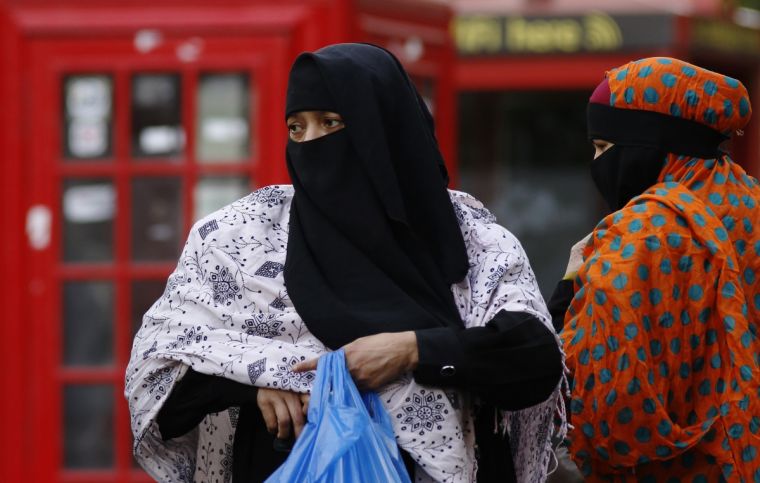Theresa May and sharia law: What does the new Prime Minister mean for Islamic courts in the UK?
Theresa May's inquiry into Sharia Law is heading into freefall.
As Home Secretary she commissioned a review into the use of sharia courts in the UK. But within weeks the whole project appears to be unravelling.
More than 200 individuals and human rights groups branded the inquiry a "whitewash" in an open letter to May. The signatories said the panel was biased after an Islamic scholar was made chair and two imams were given advisory roles. They added the review had a "narrow remit" and the wrong focus after it said it would focus on "best practice" from the courts rather than questioning whether they existed.
They wrote: "It is patronising if not racist to fob off minority women with so-called religious experts who wish to legitimate sharia laws as a form of governance in family and private matters.
"By making religious appointments, the Government has lost a vital opportunity to examine the discriminatory nature of not only sharia councils but all spheres of religious arbitration including the Batei Din [Jewish court]."

The review was commissioned after Baroness Cox, a Christian peer and campaigner in the House of Lords, compiled extensive evidence of women being abused and discriminated against through sharia courts in the UK.
She said there were certain aspects of sharia law that inherently unacceptable and it was wrong to say discrimination was only the result of a "distortion" by courts.
But at the launch of the inquiry in the spring, then Home Secretary Theresa May, said many people "benefit a great deal" from practices such as sharia law. The Home Office stressed it was not "a review of the totality of Sharia law, which is a source of guidance for many Muslims in the UK." Rather it would look to take "best practices" from the sharia courts and examine whether some had operated in a "discriminatory and unacceptable" way.
It is this refusal from the outset to question the very existence of sharia courts that has attracted so much attention from women's advocacy and human rights groups. They say sharia law in its very nature is discriminatory towards women.
The criticism was brought to a head when Professor Elham Manea, an expert in Islamic law and campaigner for women's rights, announced she would not even give evidence to the review because she considers the basis so flawed.
She said Islamic scholars on the panel are "part of the system they are supposed to be investigating" and added the terms of reference meant it "would not be in a position to address the discriminatory nature of the law applied in the parallel legal system of Sharia law in the UK and the Islamist extremism that feeds it".
But since most of this resentment boiled over Theresa May has been appointed Prime Minister.
Amber Rudd, the new Home Secretary, will now oversee the independent review, chaired by Islamic professor Mona Siddiqui from Edinburgh University.
Tim Dieppe, director of Islamic Affairs at the campaign group Christian Concern, told Christian Today he hoped the change in personnel means the inquiry would be abandoned. "[There is] an opportunity for the new Home Secretary to ditch it and do something sensible," he said. "We know action needs to be taken and we know what action needs to be taken," he added. "Whatever the inquiry says it has now lost legitimacy and any credibility. It should be scrapped."
But Siddiqui told Christian Today that May's move to Downing Street would not change the terms of the inquiry. "Everything is going ahead as originally planned," she said. She added the panel was not often in touch with ministers directly but was "communicating with the secretariat and they are in place as before".
Amber Rudd has not made her thoughts known on sharia courts nor what her approach will be over the inquiry. The Home Office has been approached for comment.











